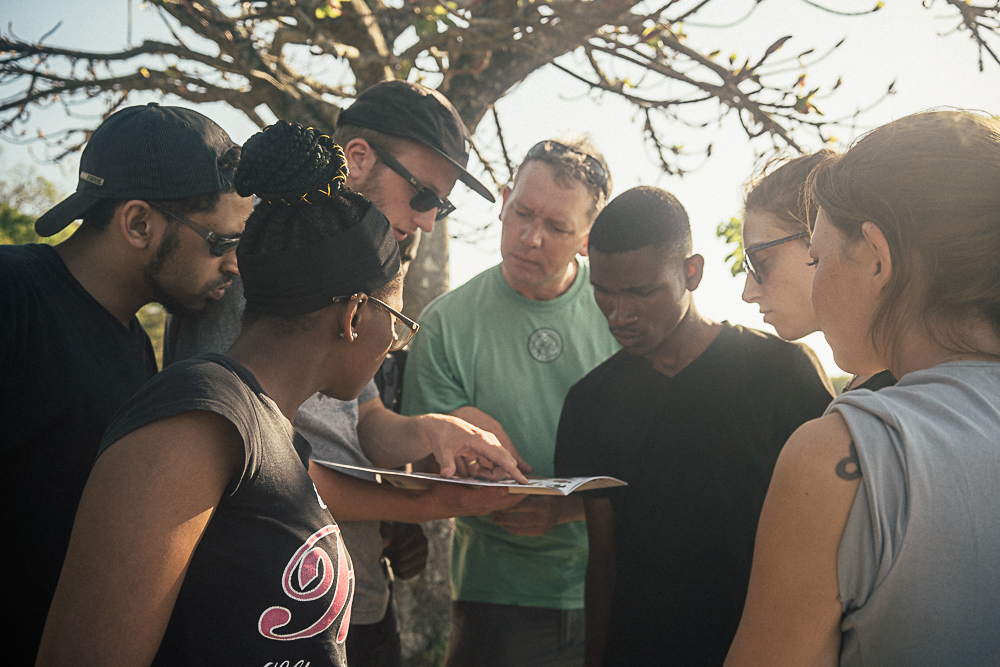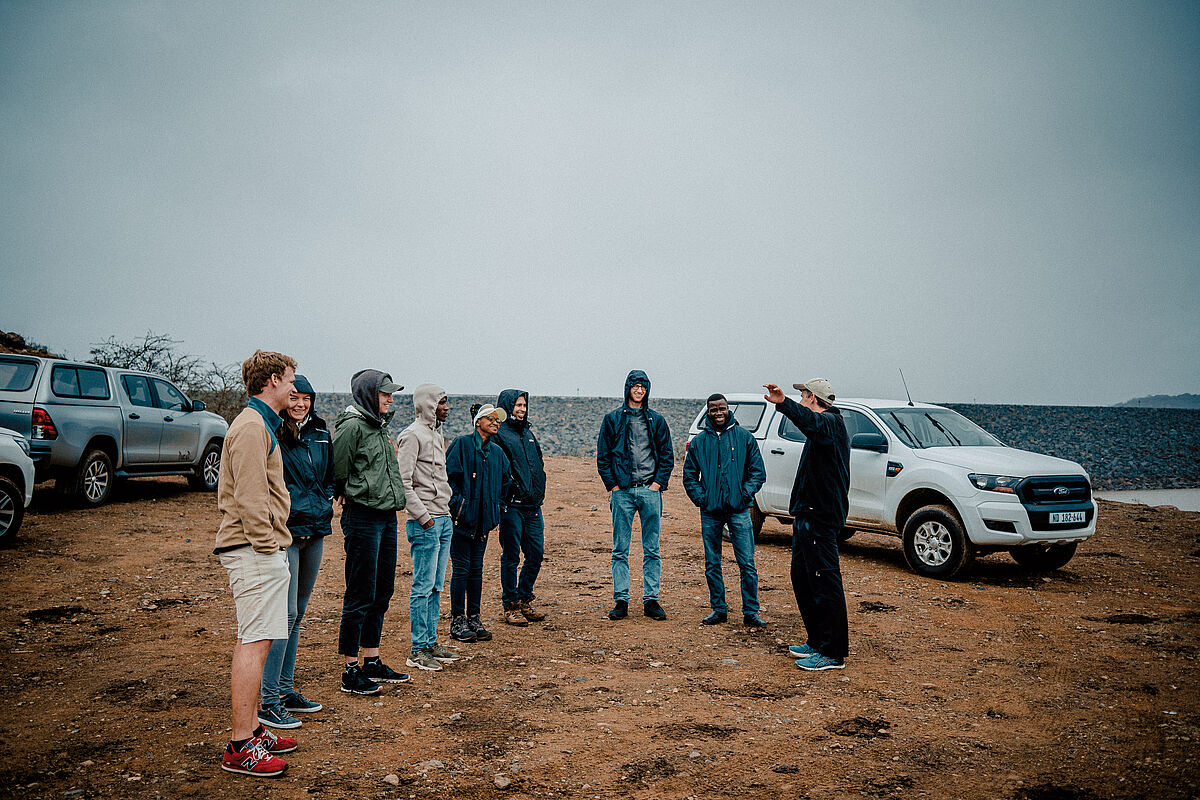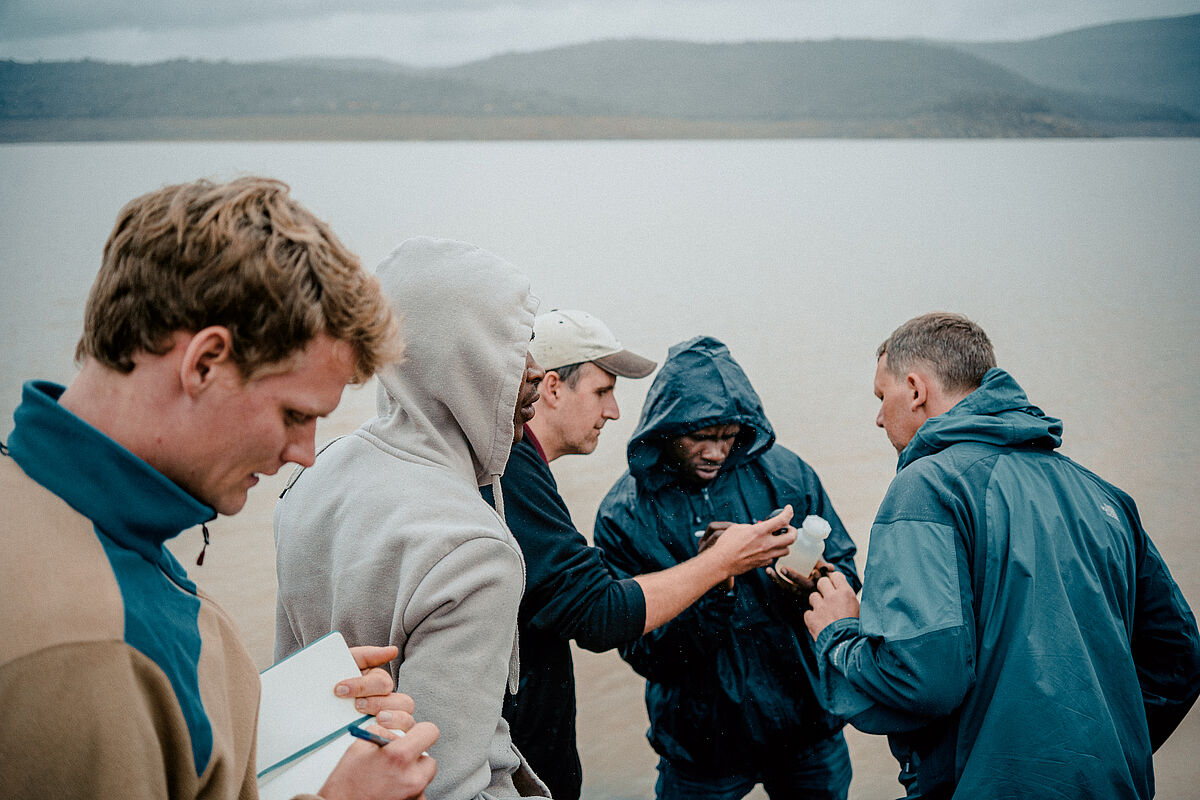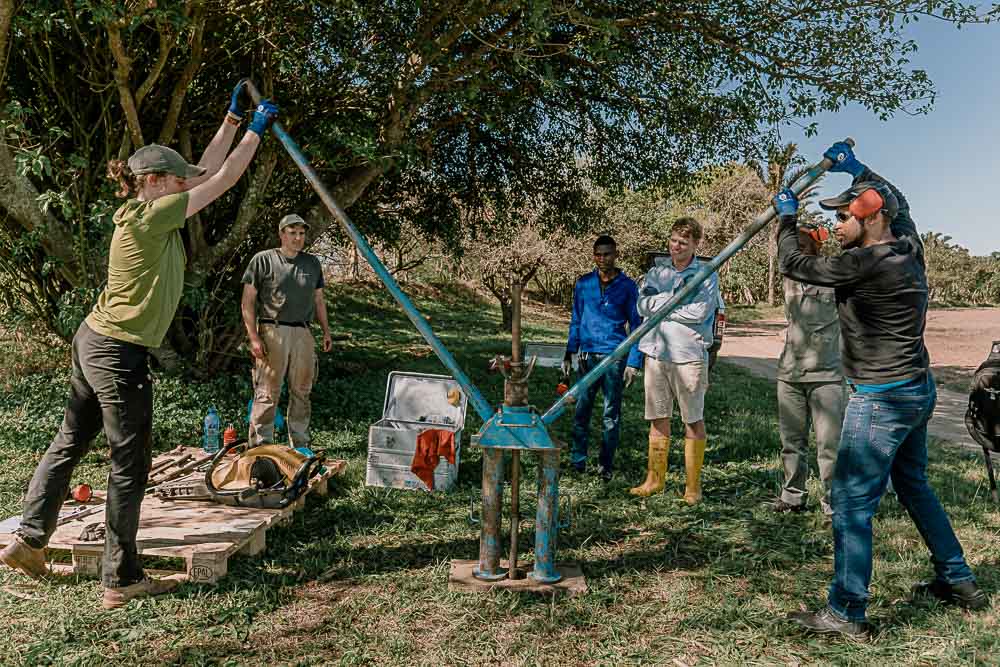Train-ME Summer Schools
Photos by Magnus Schult
Training School on Methods in Applied Earth- and Aquatic Sciences
(contemporaneously carried out in South Africa and Germany / 18-25 September 2021)
Goals of the Summer School
Participants of the Summer School will be trained in bio- and geoscientific fieldwork sampling, applied in terrestrial and aquatic environments. Water samples will be analysed in the field or field lab with both inexpensive and simple methods such as e.g. pH- indicator paper or salinity refractometer, as well as more costly field methods, such as the application of handheld multi-parameter probes or portable spectrophotometers with analytical rapid tests. Biological field methods will include plankton hauls and benthos samples, while geo techniques will focus on surface sampling of soils and sediments and long sequences of deeper soil / sediment layers with different coring equipment.
The practical knowledge how to obtain reliable scientific sample material is fundamental to answer applied questions in environmental geology and ecosystem assessments. In addition, participants will be made aware of how environmental pollution can be detected and how to identify point sources or diffuse seepages of pollutants.
It is expected that the academic background of the participants is from various disciplines in the bio- or geosciences. This will inevitably stimulate discussions about research questions and specific sample collection strategies. This will raise the awareness of the specific needs of related disciplines and strengthen individual problem-solving skills.
Due to the ongoing pandemic situation, two summer schools will be held synchronously in Germany and South Africa. To substitute the in-person professional and cultural exchange between African and German students, participants will share their experience in daily (live) video conferences and comment via social media channels.
Project description
During the Summer School participants will be introduced to very simple but also more complex field techniques. Sensitive physical and chemical parameters are best measured in situ or immediately after sampling. Standard parameters such as temperature or pH are rapidly measured in the field with cost effective methods or with the use of a multi-parameter probes to simultaneously measure conductivity and oxygen content from the same water sample. Nutrients with a quick turnover such as nitrite, nitrate, ammonium and/or phosphate are analysed with more expensive rapid tests and a photospectrometer.
Samples for analysing living zooplankton (e.g. microcrustaceans) and phytoplankton (e.g. diatoms) are obtained using plankton nets of different mesh sizes operated from a dinghy. Benthos samples are retrieved through box grabs or dredges from the sediment surface. For spatial mapping of underwater vegetation units, we will use a high-resolution underwater camera.
The retrieval of surface samples is carried out from a boat with box grabs to retrieve a defined sediment aliquot or gravity corer equipped with plastic pipes to guarantee an undisturbed sediment-water interface. The latter method is also applicable to recovered ~150 cm of the uppermost sediment layers.
Different coring devices exist to recover longer sediment sequences on land. We will demonstrate an array of common techniques such as a Russian peat corer, motor hammer corer and vibracorer. Participants will learn which techniques are best suited to each substrate, and discover the advantages and limitations of each sampling technique.
Fossilised remains of cladocerans, chironomids, ostracods, diatoms or pollen in sediment archives are valuable indicators for past environmental conditions. Prepared samples and microscopic slides will allow a brief introduction into the important groups and their indicator value in ecological and palaeoecological studies.
The Summer School will be partly documented on video and cut for short films to highlight individual methods and make them available online as a reference for future work. We will use the pandemic challenges as an opportunity to make use of online communication and e-learning tools in times of social distancing and travel restriction. Participants will organise daily (live) video conferences and comment via social media channels with the connected Train-Me summer school. A science journalist will share his communication skills to develop effective outreach material.
Even though the parallel summer schools are organised synchronously on two continents, we aim to encourage professional and cultural exchange between African and German students. To learn more about the local cultures and history we will explore the cultural heritage of both regions. In South Africa we will visit the Sibudu Cave rock shelter and the !Khwa ttu San Heritage Centre to learn about the ancient San culture. In Germany, we will dive into the Slavic culture by visiting the Slavic museum village in Groß Raden. During guided tours, the history, social systems, and ways of life of the different cultures are explained and discussed with all participants of Train-Me² connect.
Target group
The summer school is aimed at students, doctoral candidates, and junior scientists from natural and engineering disciplines. Participants do not have to have any special previous knowledge, but an interest in geosciences is encouraged.
A successful application will include a CV, a letter of motivation and one reference letter by your supervisor or employee. Application are encouraged from candidates studying or training in the geo- and / or life sciences or engineering professions. Furthermore, a balanced number of German and southern African (South Africa, Namibia, Angola, Zambia, Mozambique, Botswana, Zimbabwe, Lesotho) participants and a gender parity distribution is a matter of course. The Summer School is fully funded by the Federal Ministry of Education and Research Germany.
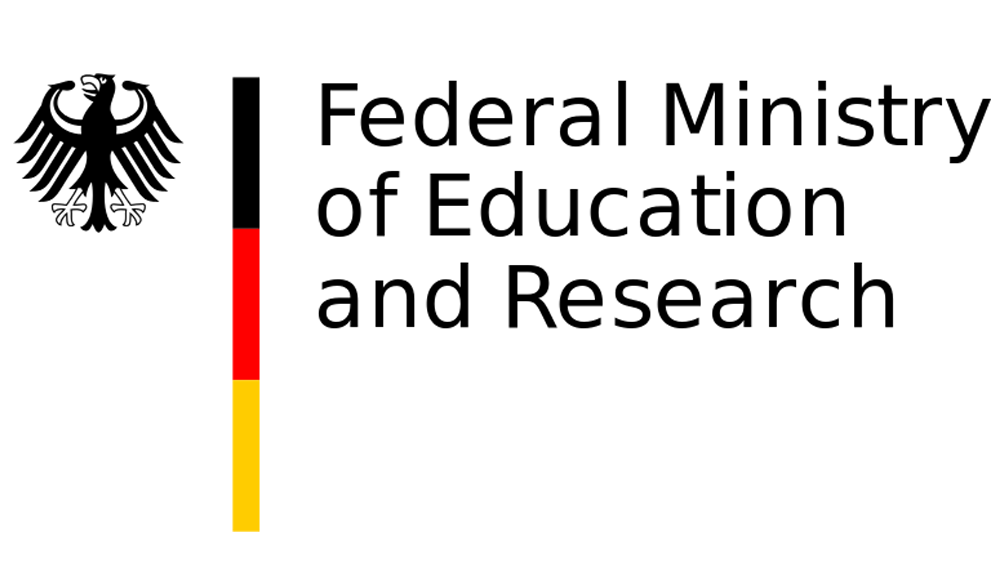
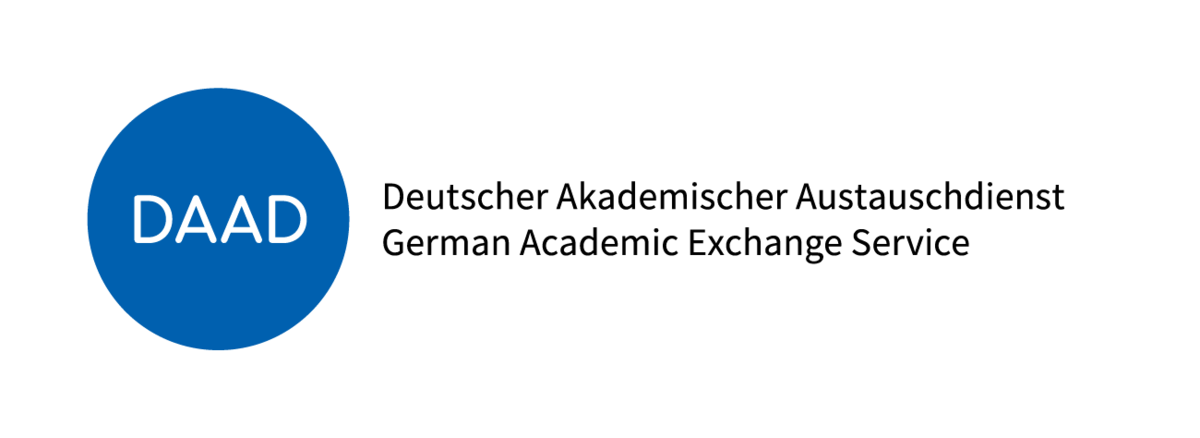
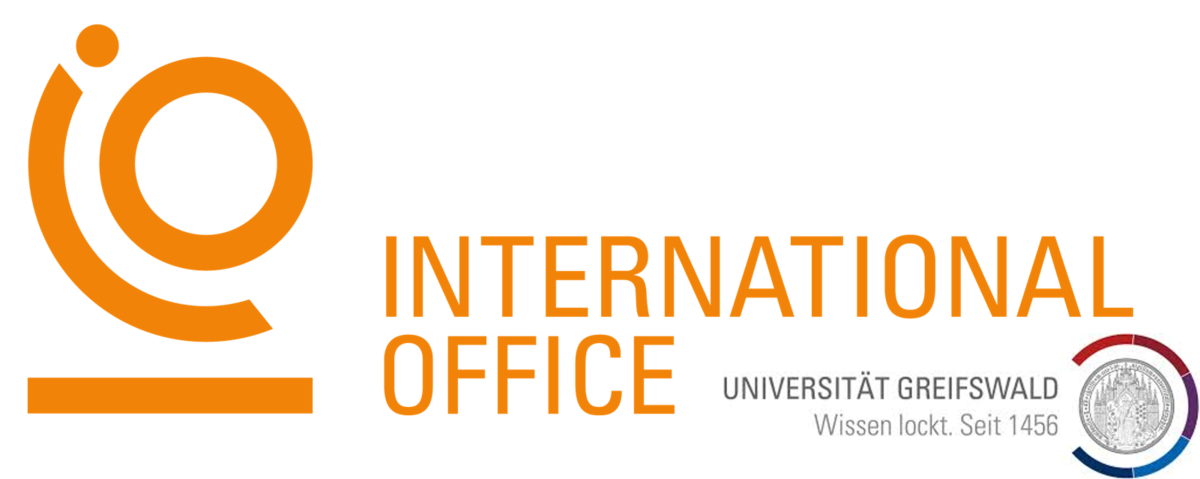
Team Germany:
Prof. Dr. Torsten Haberzettl
torsten.haberzettluni-greifswaldde
Dr. Finn Viehberg
finn.viehberguni-greifswaldde
Team Africa:
Dr. Jemma Finch
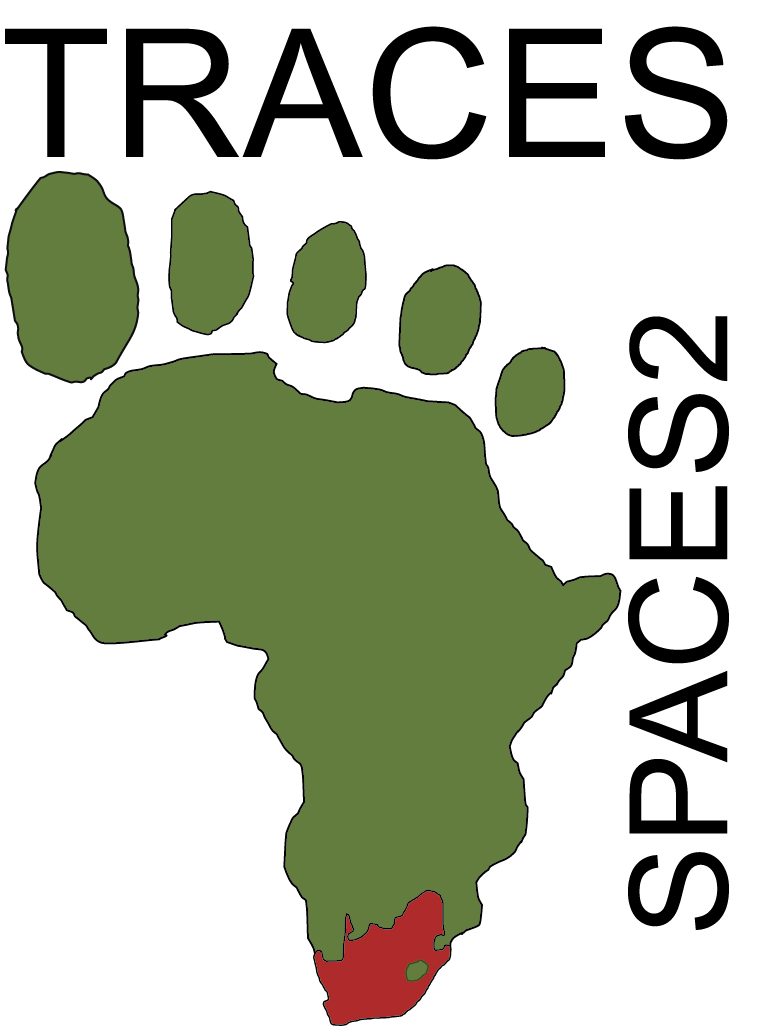
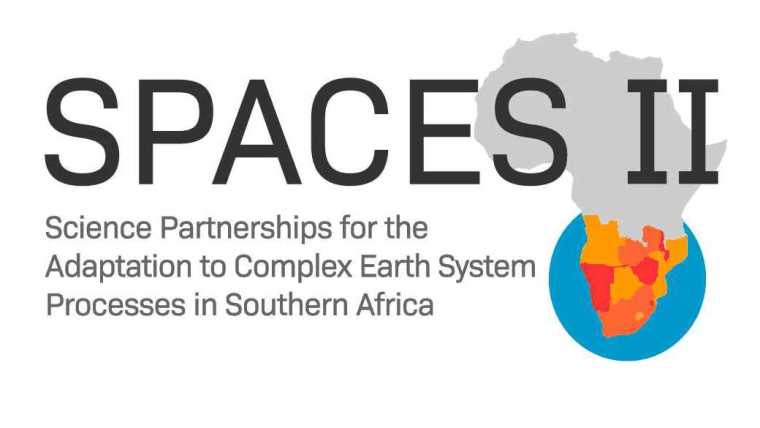
SPACES II (Science Partnerships for the Adaptation to Complex Earth System Processes in the Southern Africa) research network

